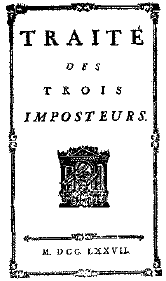Self-publishing
From The Art and Popular Culture Encyclopedia
|
Related e |
|
Featured: |
Self-publishing is the publishing of books and other media by the authors of those works, rather than by established, third-party publishers. Although it represents a small percentage of the publishing industry in terms of sales, it has been present in one form or another since the beginning of publishing and has seen an increase in activity with the advancement of publishing technology, including xerography, desktop publishing systems, print on demand, and the World Wide Web. Cultural phenomena such as the punk/DIY movement, the proliferation of media channels, and blogging have contributed to the advancement of self-publishing.
Self-publishing is not a new phenomenon. While most novels were distributed by established publishers, there have been authors who chose to self-publish, or even start their own presses, such as John Locke, Jane Austen, Emily Dickinson, Nathaniel Hawthorne, Martin Luther, Marcel Proust, Derek Walcott, and Walt Whitman. In 1759, British satirist Laurence Sterne's self-published the first two volumes of Tristram Shandy. In 1908, Ezra Pound sold A Lume Spento for six pence each. In 1931 the author of The Joy of Cooking paid a local printing company to print 3000 copies; the Bobbs-Merrill Company acquired the rights, and since then the book has sold over 18 million copies. In 1941, writer Virginia Woolf chose to self-publish her final novel Between the Acts on her Hogarth Press, in effect starting her own press.
Blog
A blog (a truncation of "weblog") is a discussion or informational website published on the World Wide Web consisting of discrete, often informal diary-style text entries (posts). Posts are typically displayed in reverse chronological order, so that the most recent post appears first, at the top of the web page.
Self-publication and Wikipedia notability guidelines
- See also unpublished
In this regard, it should be especially noted that self-publication and/or publication by a vanity press is indicative, but not determinative of non-notability. Exceptions do exist such as Robert Gunther's Early Science in Oxford or Edgar Allan Poe's Tamerlane. Note however that both of these books would be considered notable by virtue (for instance) of criterion 1.
Taking the preceding threshold section into account, it should be noted that many vanity press books are both assigned ISBN numbers and may be listed in a national library such as the Library of Congress, as well as are amenable to being found through a Google Book Search.
By the same token, it should always weigh against an article's inclusion if the author or other interested party is the creator of the Wikipedia article.
See also
- Self-publishing and Wikipedia
- Vanity press
- Zine
- Samizdat
- Self-published best-sellers
- Promotion (marketing)


